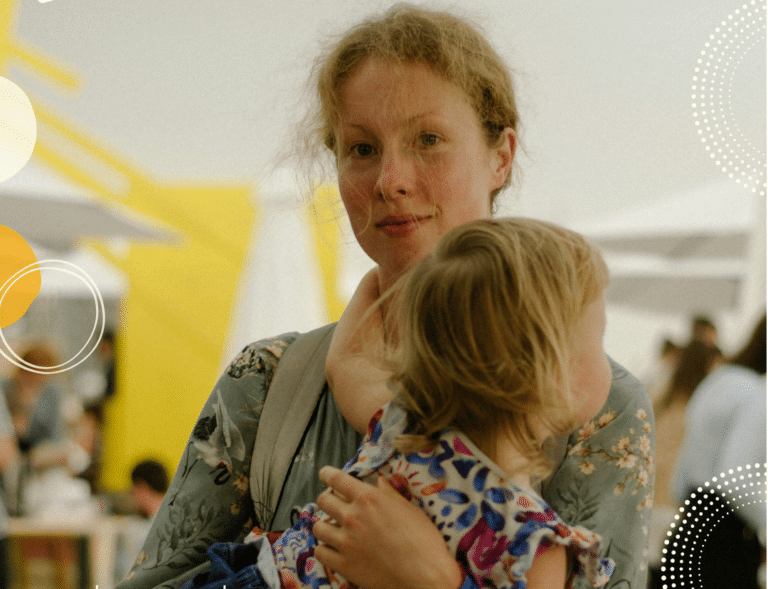Promoting healthy body image in girls
Guest post by Janet Boseovski & Ashleigh Gallagher, authors of Beyond Body Positive*
Girls begin to think about their bodies (how they look and how they are seen by others) early in life. Even preschool aged girls come into constant contact with influential and unrealistic standards for their appearance. And at this age, we know that children are eagerly considering information from many different sources about how they should think, feel, and behave. This exposure creates vulnerability to thoughts and behaviours that are unhealthy precisely at a time when body image is developing, and parents must be prepared to have active involvement in this process. Although fathers and other caregivers are important in girls’ lives, research shows that mums are especially influential to girls’ developing sense of who they are, or their self-concept.
What can parents do to help their daughters build a healthy body image? Lost in the shuffle of much body image advice is the fact that body image is only one part of who we are and that what lies beneath a healthy body image is a full and diverse self-concept. The self-concept contains all kinds of information about us – such as our personality, preferences, and values – only one of which is body image. Awareness of the broader self-concept matters because it provides an opportunity for mums to de-emphasise the importance of physical appearance.
This may seem like an overwhelming or time-consuming task, but little, everyday actions add up and can be included in your daily routine. In our book, Beyond Body Positive, we offer practical suggestions for how to take advantage of these opportunities throughout girlhood, including the following:
Talk about your “self” with your daughter
Practice actively defining yourself by non-appearance-related qualities to encourage her to do so too. This will look different depending on your daughter’s age. For example, you can focus on your outward behaviour with younger girls and your personality traits for older girls. Younger girls can benefit from hearing about experiences that you’ve had in the past, while older girls can additionally benefit from hearing about changes in your beliefs and values over time.
Invite your daughter to talk about who she is with you. What qualities can she name about herself? What kinds of adventures or experiences would she like to have? For older girls, talk to your daughter about what kind of person she would like to be, including aspects about herself that she might want to change. Celebrate how people grow and change, as well as aspects of them that remain the same. Celebrate how you and your daughter are alike and different.
 Turn the camera outward
Turn the camera outward
We live in a “selfie” culture. But beauty can be found all around us, and it’s good to shine the spotlight on beauty that we find outside of people’s physical characteristics. For example, consider spending time outdoors or photographing an activity, nature, architecture, food, animals, or places. Aim to capture some memories of events that don’t necessarily include photos of people. Give your daughter the opportunity to do the same.
Talk about these photos together and remember positive or fun things that happened.
Expand the types of things that you can do
Physical appearance is interesting and often appealing. But what we do is so much more awesome than how we look! Experiment with new types of movement. For younger girls, this can include something unstructured, such as making up a silly dance together. For older girls, it may also include trying a new sport. Take care to ensure that your child’s coaches emphasise skill and performance development rather than your daughter’s weight or physical attributes.
Safeguard the developing self-concept
During the time your daughter is away from you, she will encounter others who influence her, both socially and emotionally, and this is great—it’s a crucial part of her social development. But you can’t be with her all the time or control the actions of others. So, you want to prepare her ahead of time with reminders about who she is as a person to ease the effects of uninvited or inappropriate comments from others. You might consider tucking a brief note in her lunchbox or posting one on her bathroom mirror that reminds her of who she is and how she is valued. You can remind her of a time she did something awesome, or funny, or daring. You can remind her of your favourite aspects of who she is as a person. Or you can simply let her know that you are on her side and are rooting for her throughout the day.
Encourage a healthy perspective
Everyone benefits from some care and compassion, and we are often most critical when it comes to ourselves. Help her see opportunities to show some self-compassion or self-care. Discuss moments of your own failures, mistakes, or embarrassment to show that these happen to everyone and encourage her to do the same. Model the choice to forgive yourselves when things go wrong and identify things that soothe you after a difficult challenge (e.g., music, solitude, or sharing).
In suggesting these healthy self-concept development tips, we are not saying that physical appearance isn’t important or that it needs to be ignored. It’s only natural that we pay some attention to how we look! But what we are saying is that less attention to our physical appearance and more attention to who we are is the way to build a healthy body image from the ground up. After all, when you look at your daughter, it is all her personal qualities and the amazing things that she does that define her likeable, loveable self.


*This post contains affiliate links which means that if you click through from this post and buy a book, the Positive Parenting Project will receive a small commission. There is no additional charge to you. This helps fund the free information we provide to parents. For more info, see Disclosure Notice.








Leave a Reply